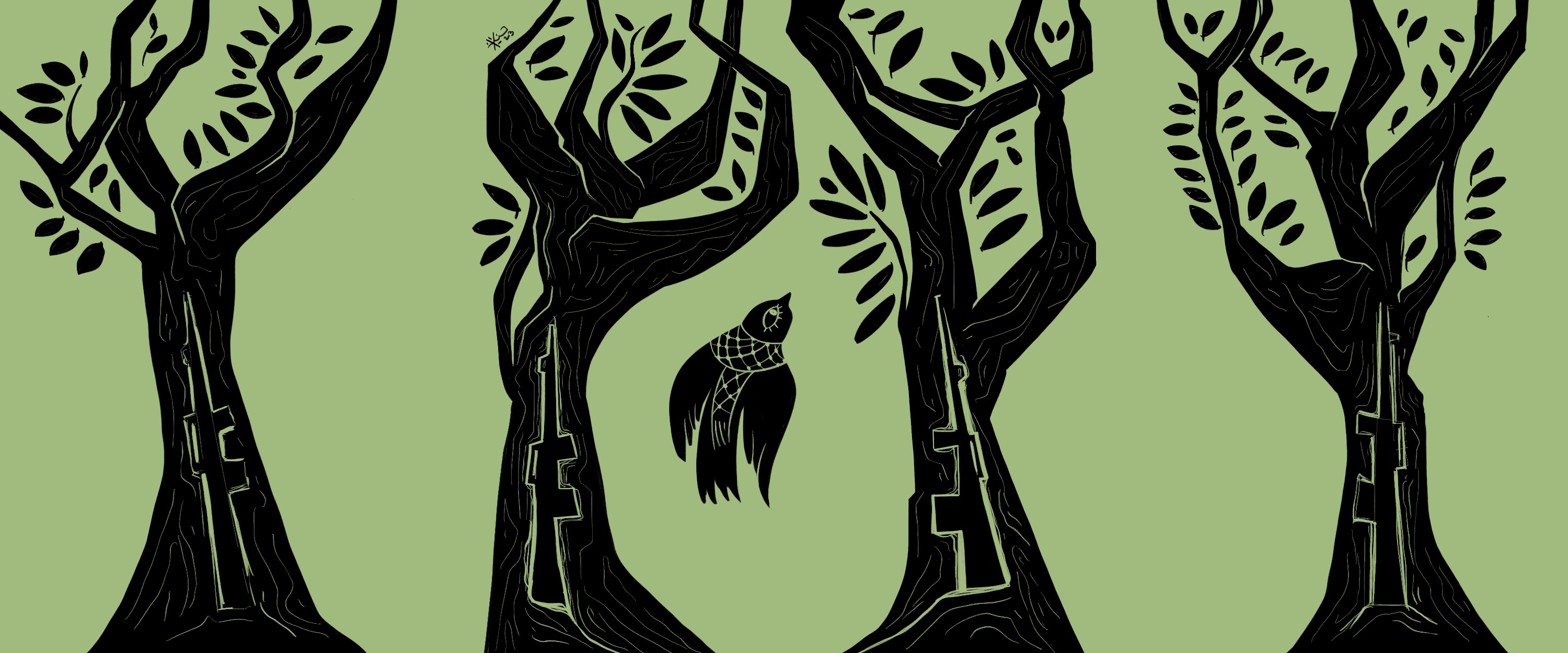On October 9th, we woke up to news of Israel dropping white phosphorus bombs — an internationally banned incendiary weapon — on South Lebanon. As a result of these attacks, intense fires broke out, burning down large swathes of Lebanese forests, damaging agricultural lands, and destroying around 47,000 ancient olive trees1, along with many other native perennials.
The Israeli targeting of olive trees and the environment is not an indirect consequence of war, but a deliberate, systematic attack intended to wreak destruction on the indigenous people of the land and the nature that embraces them. This is a recurrent pattern among the colossal atrocities committed by the Israeli occupation in Lebanon and Palestine, which begs the customary question: If you are indigenous to the land, how could you be so hell-bent on razing it?
These olive trees are an expression of the indigenous people’s roots in the land, and our devotion to them is a reverence that dates back centuries. The harvesting of olives is an ancient Levantine tradition. Relatives gather each fall to carefully pick olives from the orchards by hand, only to be pressed later and turned into the most important ingredient in our cuisine, olive oil — a primary source of nutrition in our diet. This near-sacrosanct, collective practice has been passed down through generations.
Thousands of Lebanese and Palestinian families rely on olive trees for their livelihood. Olive production is profitable, as it provides farmers with financial returns to sustain themselves. That said, the importance of olive trees transcends their mere monetary value: they are symbolic of our national identity, the backbone of our cultural heritage. They are steadfast witnesses to our land and its vast history.
In fact, a symbiotic relationship exists between us and the ancient trees that have been tended to by our ancestors. We honor and care for them, and in return, they offer us protection, nourishment, livelihood and even healing. This very reciprocity poses a challenge to the Zionist settler colonial project.
Upon the establishment of the colonial entity, Zionists, with no connection to Palestine other than their own imagined prophecies and biblical fantasies, set out to plant the European pine tree at the expense of native olive groves. Known for its rapid growth, the pine tree became a central feature of the Zionist occupation of Palestine: they rushed to alter the Palestinian landscape, which was alien to them, to make it more familiar — more European2. This is the core logic of settler colonialism; erasing what was to pave the way for the new.
Aside from the fact that invasive species wreak havoc on local ecosystems, the reshaping of this foreign geography by the intruders was also a tool deployed to conceal their crimes. The forestation of pine trees covered their traces of the ethnic cleansing and ravaging of Palestinian villages, aimed at erasing any signs of prior Palestinian presence, while also blocking any possibility of return of those who were violently displaced from their homes.
The onslaught against indigenous people and their surroundings through genocide and the establishment of new settler ecologies didn’t end there. Destroying olive trees is a standard Israeli procedure. The caretakers of these olive trees are subject to routine restrictions and violence. They are often denied access to their lands and harassed or killed, as their olive trees are regularly uprooted and burned by settlers. Overall, Palestinian agricultural lands are continuously marred by Israeli aggression.
Spraying poisonous herbicides3 to devastate harvests, soil and biodiversity; wrecking water springs, wells, pipes or any water-related installations4 and halting irrigation; dumping Israel’s wastewater into streams that flow into agricultural lands5; terrorizing shepherds and their livestock6; these acts are rooted in the Zionist quest to dominate lands, access to water and the capacity to produce food.
Colonizing indigenous land depends on the plundering of all natural resources needed for survival. This violent disruption of our relationship with nature seeks to render Palestinian lives unlivable, push them to a breaking point, and exhaust their determination to remain anchored in their land. The ultimate goal of the invasive settler is elimination and replacement.
Given that the Zionist settler colonial project strives to shatter the intricate link we have to our land, reinforcing this scared connection and fulfilling our caretaking responsibilities towards the natural world to the greatest degree is an indisputable act of resistance.
47,000 olive trees will take a long time to grow back, but we will plant them again.
Lest we forget, the forests set ablaze by the occupier also cause a peculiar nuisance to the invader — they shelter resistance fighters.


